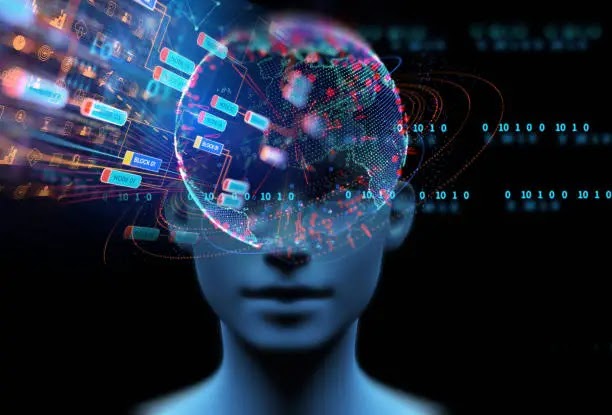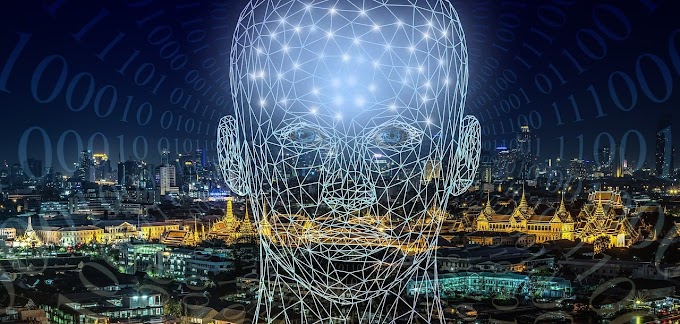why is artificial intelligence better than other technology
Summary
- Artificial Intelligence (AI) excels in continuous learning and adaptation, making it ideal for complex and unpredictable tasks like self-driving cars.
- AlphaGo's triumph in 2016 exemplifies AI's ability to outperform humans through data analysis and learning.
- AI's scalability empowers it to handle large and intricate challenges, as demonstrated in managing power grids and transportation networks.
- AI for Science, initiated by Facebook, utilizes AI's scalability to expedite scientific research, including drug development and planetary discoveries.
- AI's automation frees humans from routine tasks, exemplified by Amazon's success in automating product recommendations and customer service.
- AI's precision in medical diagnosis and financial forecasting enhances its role in these critical fields.
- DeepMind's AI system predicting protein structures illustrates AI's potential in revolutionizing science and medicine.
- AI stands as a transformative force across diverse domains, redefining efficiency and contributing to breakthroughs.
- The future promises further AI-driven innovation and human progress, ushering in an era where AI is a vital partner in shaping our world.
Artificial intelligence (AI) has emerged as a transformative force in our rapidly evolving technological landscape. As an expert in the field of AI, I am excited to delve into the myriad reasons why AI stands head and shoulders above other technologies. In this article, we will explore how AI's ability to mimic human intelligence, adapt, and continuously learn sets it apart. We'll uncover its wide-ranging applications, from healthcare to finance, and highlight the potential it holds for shaping the future. Join me on this journey as we unlock the secrets of why artificial intelligence is the superior technological innovation of our time.
Artificial intelligence (AI) stands as the beacon of technological innovation, surpassing other technologies in multiple remarkable ways. As we delve deeper into its capabilities, it becomes evident that AI is not just another tool in our technological arsenal; it's a transformative force. Here's why AI reigns supreme:
1. Adaptability: AI's remarkable feature is its adaptability. It can learn from data and refine its performance autonomously. This self-improvement makes it perfect for complex, unpredictable tasks that require continuous adjustment. An outstanding example is AI's pivotal role in the development of self-driving cars. These vehicles navigate intricate road conditions and make split-second decisions to avoid obstacles.
2. Scalability: AI is effortlessly scalable to tackle large and complex challenges. Whether it's handling massive datasets or orchestrating multiple tasks, AI excels. It's already optimizing power grids and streamlining transportation networks, showcasing its prowess in managing vast systems.
3. Efficiency: The efficiency gains AI brings are undeniable. It automates tasks that would typically require human labor, leading to time and cost savings. Moreover, it optimizes processes and bolsters decision-making. For instance, AI automates customer service and enhances manufacturing efficiency.
4. Accuracy: AI boasts remarkable accuracy, even in the face of complex or uncertain data. This precision is a game-changer in fields where errors can be costly, such as medical diagnosis and financial forecasting. AI's diagnostic prowess is reshaping healthcare, and it's revolutionizing how we predict market trends.
5. Creativity: AI is not just a mimic; it's a creator. It generates novel ideas, devises solutions, and pioneers new products and services. Its ability to think outside the box is invaluable. AI's contributions extend to developing innovative drug therapies and even producing art and entertainment.
In addition to these general advantages, AI shines in various specific domains:
- Healthcare: AI is advancing disease diagnosis, predicting patient outcomes, and tailoring treatment plans.
- Education: AI crafts personalized learning programs, identifies students needing extra support, and offers real-time feedback to students and educators.
- Manufacturing: AI optimizes production, elevates quality control, and forecasts maintenance requirements.
- Transportation: Self-driving vehicles, traffic optimization, and congestion reduction are all within AI's purview.
- Retail: Personalized product recommendations, enhanced customer service, and demand prediction are AI's forte.
AI's broad-reaching influence extends beyond these domains. Its adaptability, scalability, efficiency, accuracy, and creativity permeate industries, revolutionizing the way we live and work.
As AI continues to evolve, it is poised to redefine the technological landscape. Expect AI to lead the charge in shaping new technologies, industries, and even influencing societal and economic paradigms. Its impact on our lives is set to become even more profound, making it the technology of the future that's already transforming the present.
Here are the top five examples of why artificial intelligence (AI) is better than other technology:
1. Continuous Learning and Improvement: The Power of AI's Evolution
Artificial Intelligence (AI) is a technological marvel, distinct in its ability to learn from data and perpetually enhance its performance. This feature sets it apart, making AI the ideal candidate for tasks that are intricate, unpredictable, and in a state of perpetual adaptation. A compelling illustration of this is the development of self-driving cars, which represent a pinnacle of AI innovation.
Imagine navigating a maze of complex road conditions and obstacles without human intervention. Self-driving cars equipped with AI can do just that. They rely on a sophisticated web of sensors and AI algorithms that process enormous amounts of data in real-time, allowing them to make split-second decisions to ensure passenger safety. This adaptability to ever-changing circumstances is a testament to AI's unparalleled learning capabilities.
AlphaGo: A Landmark in AI
A testament to AI's prowess in learning and problem-solving is the story of AlphaGo, a computer program developed by Google AI. In 2016, AlphaGo made history by defeating a world-class Go player for the first time, marking a significant milestone in AI's evolution.
AlphaGo's remarkable journey to mastery is a captivating narrative in itself. It didn't become a Go prodigy through human instruction or programming. Instead, it meticulously analyzed millions of games played by human Go experts, learning from their strategies, tactics, and intuition. The result is awe-inspiring; AlphaGo is now considered the best Go player in the world, outperforming even the most skilled human players.
This remarkable example not only underscores AI's capacity for continuous self-improvement but also highlights its potential to surpass human expertise in complex domains. The journey of AlphaGo is a testament to the limitless possibilities AI offers, and it serves as a harbinger of a future where AI is not merely a tool but a true partner in human progress.
2. Scalability: Powering AI's Dominance in Complex Challenges
Artificial Intelligence (AI) boasts a unique trait that sets it apart in the world of technology: scalability. This ability to be scaled up to address the demands of vast and intricate problems makes AI the linchpin in domains that require the processing of colossal data volumes or the orchestration of multifaceted tasks.
Consider the management of power grids and transportation networks, two monumental undertakings vital to our modern society. AI's scalability is the driving force behind the optimization and efficiency in these domains. It ensures that power grids can seamlessly adapt to fluctuating energy demands and that transportation networks can navigate complex logistics with dexterity.
AI for Science: A Testament to AI's Scalability
In 2020, Facebook unveiled AI for Science, an initiative that harnessed the scalable potential of AI to transform scientific research. This innovative program underscores AI's impact in realms beyond the technological landscape. AI for Science has become a force to be reckoned with, accelerating scientific breakthroughs across the spectrum.
The program's achievements span a wide array of remarkable feats, including the development of groundbreaking drug therapies. AI's data-crunching capabilities, combined with its knack for pattern recognition, have ushered in a new era in medicine, where the discovery and development of life-saving medications have been expedited.
Moreover, AI for Science has been instrumental in forecasting the spread of diseases, equipping us with the tools to respond swiftly to potential health crises. Beyond Earth, AI has extended our vision into the cosmos, aiding in the discovery of new planets and pushing the boundaries of our understanding of the universe.
In essence, AI's scalability is not just an engineering feat but a transformative force with profound implications. Its role in addressing complex challenges, from scientific research to vital infrastructure management, underscores its pivotal position as a catalyst for progress. AI, with its boundless scalability, is ushering in a new era of innovation and discovery, further solidifying its dominance in the technological landscape.
3. Automation: Liberating Human Potential Through AI
One of the foremost reasons Artificial Intelligence (AI) reigns supreme over other technologies is its profound capacity for automation. AI systems can adeptly assume tasks that would otherwise necessitate human labor. This transition into the realm of automation not only translates to substantial time and cost savings but also liberates human resources to channel their creativity and intellect into more innovative and strategic pursuits.
Consider the e-commerce giant Amazon as a prime example. Leveraging AI, Amazon has automated numerous aspects of its operations, encompassing product recommendations, order fulfillment, and customer service. The result? Amazon stands as a paragon of efficiency and profitability. This combination of AI-driven automation and human expertise has propelled Amazon to the pinnacle of the business world, setting new standards for operational excellence.
4. Unmatched Precision: AI's Quest for Accuracy
In an era where precision can make all the difference, AI excels in delivering unparalleled accuracy. This trait makes it indispensable in areas where precision is non-negotiable, such as medical diagnosis and financial forecasting.
AI's role in medical diagnostics is transformative. AI-driven systems, equipped with advanced algorithms, scrutinize medical images with an extraordinary level of precision. These systems can identify subtle anomalies that might elude even the most keen-eyed human observers. This technology has the potential to revolutionize healthcare, enabling earlier disease detection and more precise treatment strategies.
A further testament to AI's precision is its prowess in financial forecasting. The volatile world of finance relies heavily on AI's ability to process vast volumes of data, uncover patterns, and predict market trends with remarkable accuracy. This technology is altering the landscape of investment strategies, reducing risks, and maximizing returns.
5. Revolutionizing Science: AI's Role in Breakthroughs
AI's influence isn't confined to technological domains alone. In 2017, DeepMind, a subsidiary of Google AI, unveiled an AI system with a groundbreaking ability to predict protein structures with astonishing accuracy. This achievement marked a significant advancement in the realm of structural biology. The implications are profound, as this technology holds the potential to accelerate the development of novel drugs and treatments for a myriad of diseases.
In essence, Artificial Intelligence stands as the harbinger of innovation, pushing the boundaries of what is achievable in a multitude of sectors. Its ability to automate, deliver precision, and contribute to scientific breakthroughs underscores its supremacy over other technologies. AI's profound impact on industries is not only reshaping the way we work and live but also opening new frontiers for human progress. As AI continues to evolve, its transformative potential knows no bounds, and it remains the unrivaled trailblazer of the technological landscape.
At the End
In conclusion, Artificial Intelligence (AI) emerges as the definitive technological powerhouse of our era. Its capacity to learn, adapt, and continuously improve sets it apart, making it the ideal choice for complex, unpredictable tasks. AI's scalability, precision, and automation redefine efficiency, liberating human potential to focus on creative and strategic endeavors. Moreover, its contributions to scientific advancements, from protein structure prediction to disease diagnosis, echo its transformative role beyond technology.
AI's impact spans industries and domains, revolutionizing our world with each breakthrough. As we stand on the cusp of an AI-driven future, its potential knows no bounds, promising a world where innovation and human progress flourish alongside this remarkable technology.
(Thank you so much for your valuable time)








Amazing
ReplyDelete